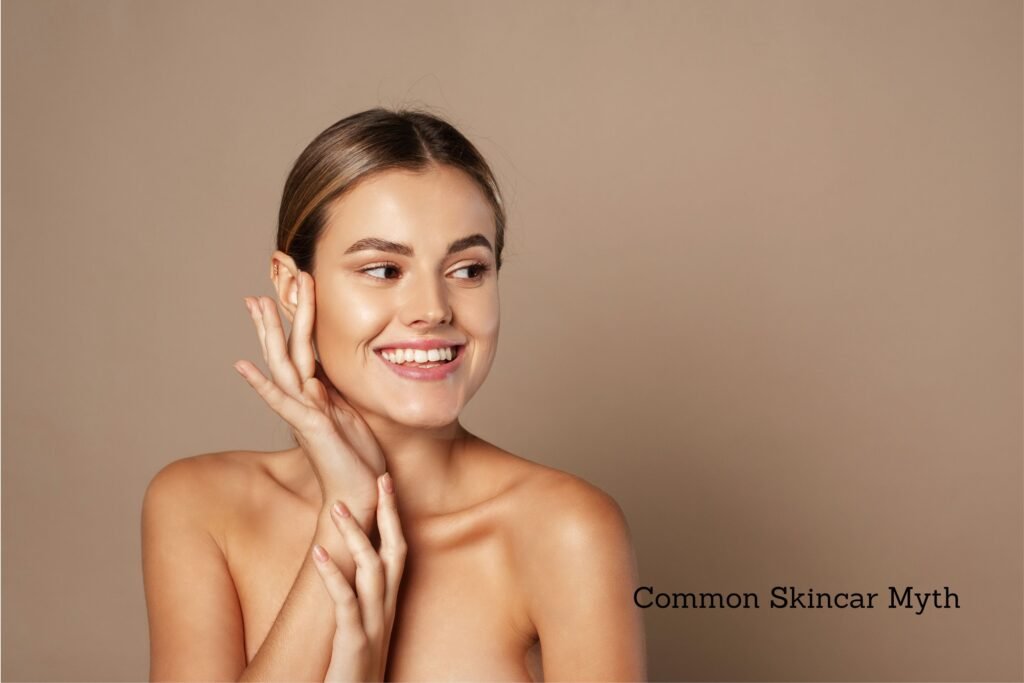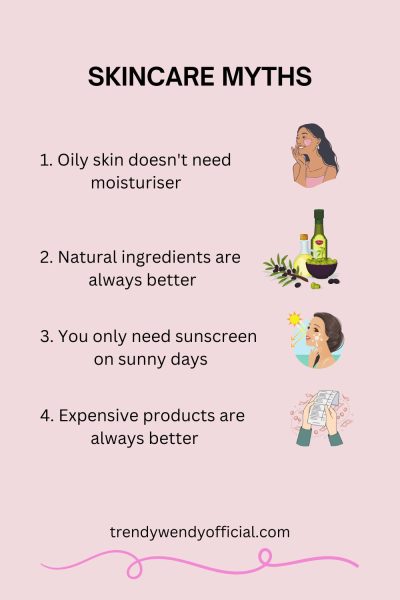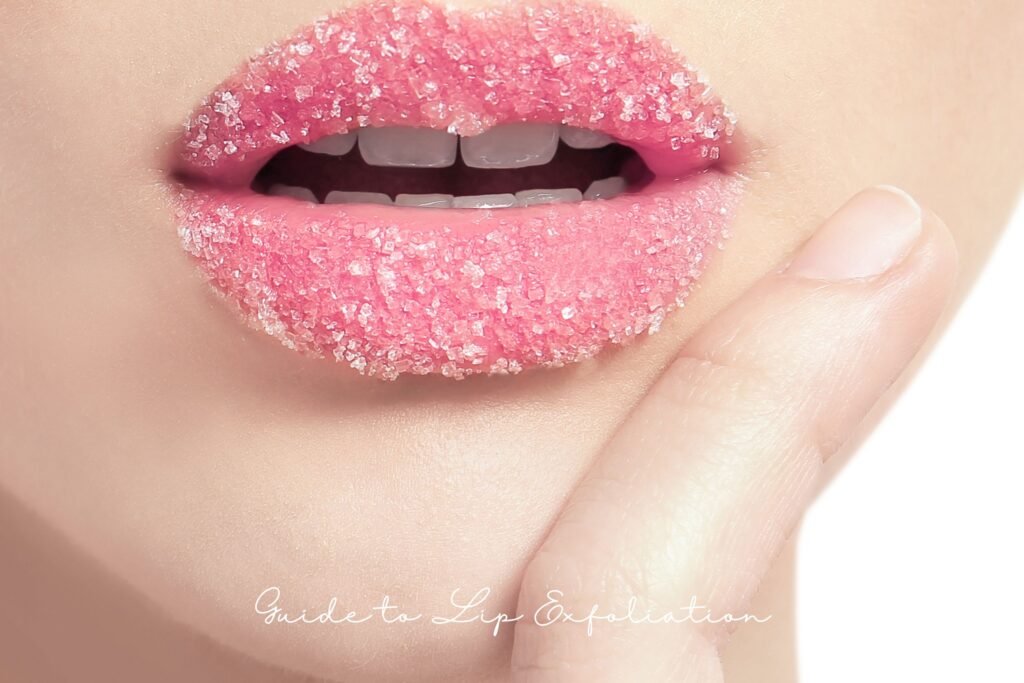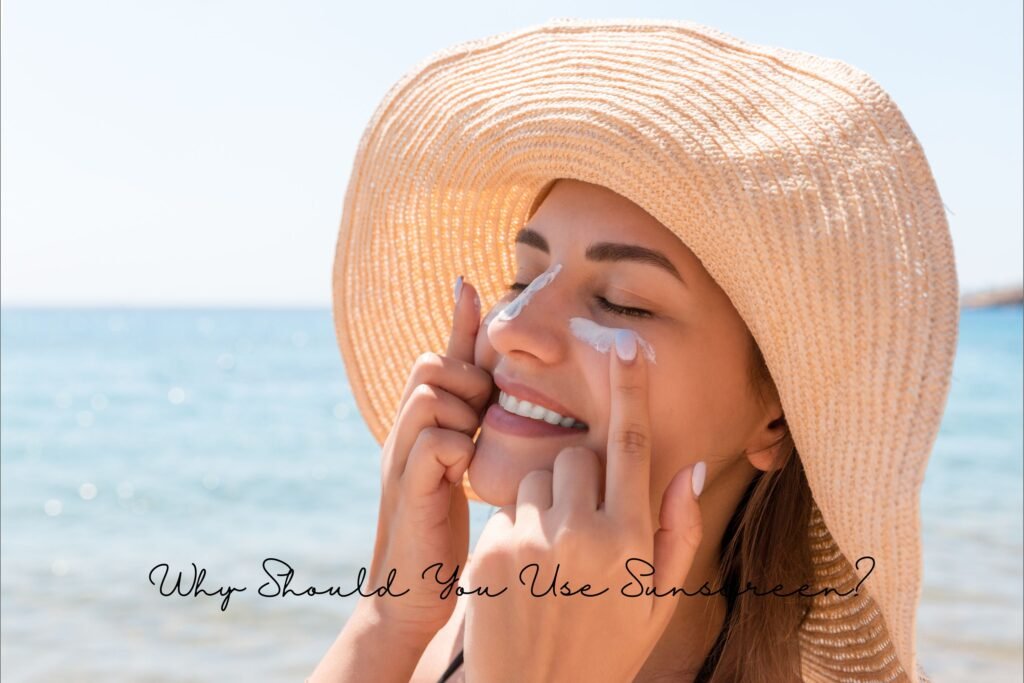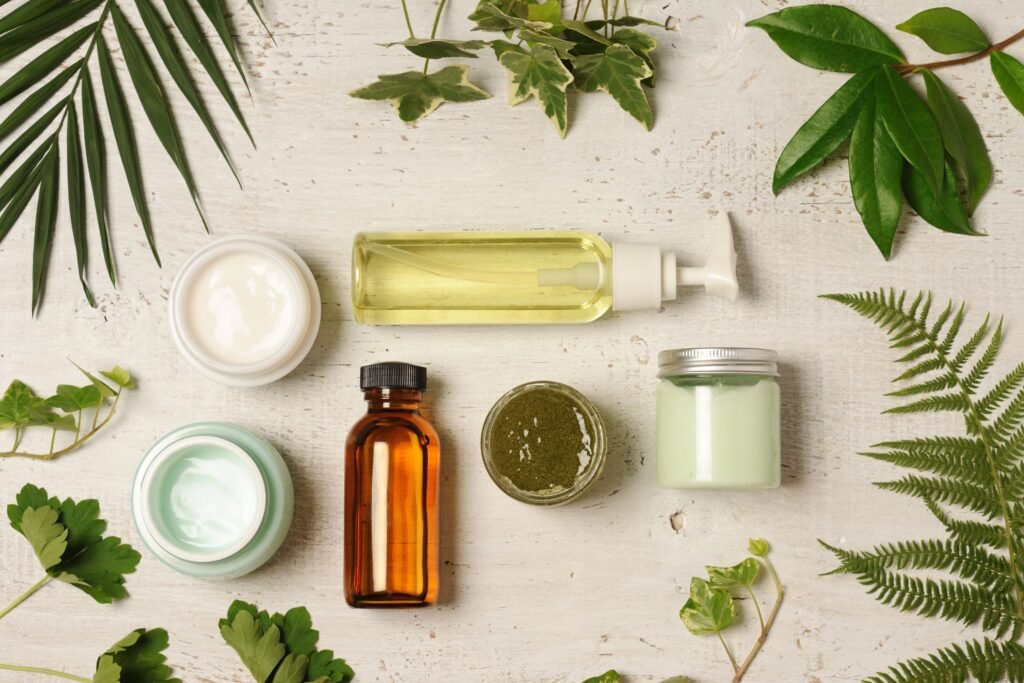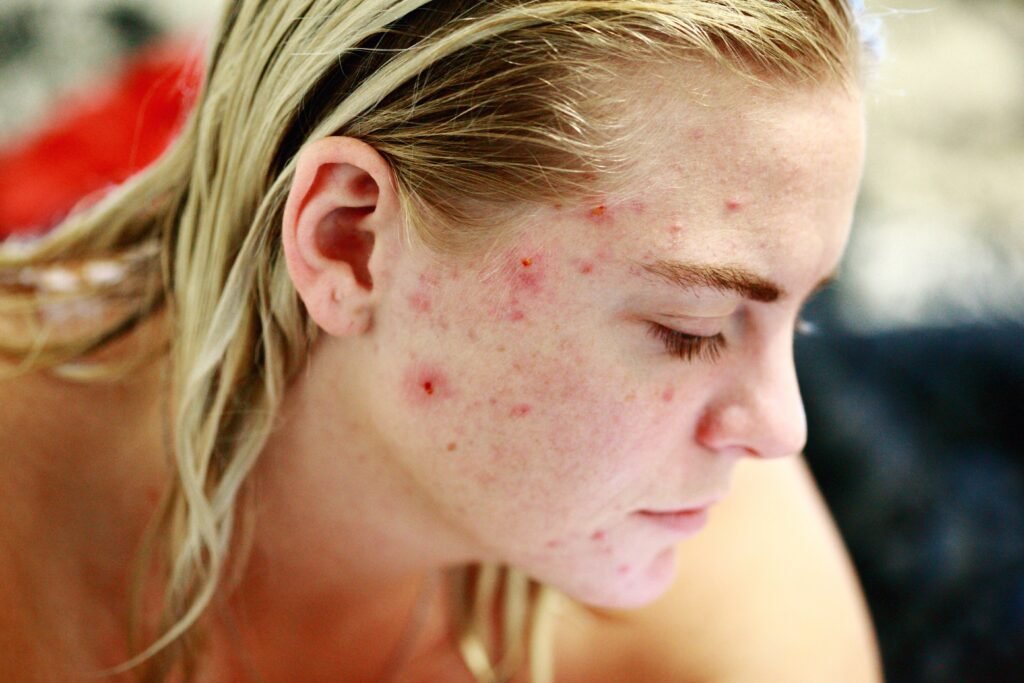You do skincare on a daily basis. Everyone on this earth has different skin types, different preferences, and most importantly, everyone’s geographical location is different. That’s why when you talk about your skincare routine to other people, it can seem odd for them, and vice versa for you too. This is where skincare myths often come into play—what works for one person may not work for another, leading to misconceptions and confusion.
Skincare has been a trend since ancient times. Where there is beauty and charm, there is a tendency to preserve that beauty forever. That’s why it has evolved over time. People have combined science and skincare to perform miracles.
Skincare is a topic filled with advice, tips, and tricks—some helpful and others not so much. With the rise of social media and beauty influencers, myths about skincare have become widespread, leading to confusion and even harmful practices. In this blog, I will address some of the most common skincare myths, setting the record straight so you can make informed decisions for your skin.
Oily Skin Doesn’t Need Moisturizer
Oily, dry, or sensitive skin—every skin type needs moisturizer. Your skin needs to be hydrated all the time. If it is not hydrated, it will produce oil from the sebaceous glands to preserve moisture. If you have oily skin and you think your skin is getting too oily, it means it is not hydrated properly.
So, what is the value of moisturizer then?
A moisturizer works as a barrier for your skin. Whenever your skin starts to lose moisture due to environmental factors, the moisturizer works against it. It helps to retain moisture within the skin follicles.
That is why it is a myth that oily skin does not need any moisturizer because it makes the skin oilier. This is incorrect. Opt for an oil-free, gel-based moisturizer.
Natural Ingredients Are Always Better
While natural ingredients can be beneficial, not all of them are suitable for every skin type, and some can even be irritating.
Natural ingredients are not always as effective. If you want results quickly, you may need to opt for chemical-based products. Natural ingredients are inexpensive, easy to find, and free from harsh chemicals, but sometimes they can also cause irritation.
For example, lemon juice is often touted as a natural remedy for brightening the skin, but its high acidity can cause irritation and even chemical burns. It’s essential to remember that just because something is natural doesn’t mean it’s safe or effective for skincare.
You Only Need Sunscreen on Sunny Days
No, you need sunscreen every day during daylight hours. Let’s say it’s a cloudy day and the sun is not so strong. But it’s still daytime. Whenever there is natural light, it means sun rays are present. And if there are sun rays, there are UV rays too.
UV rays can penetrate clouds and even windows, meaning your skin is exposed to harmful rays year-round, regardless of the weather. Skipping sunscreen on cloudy days or when indoors can lead to cumulative sun damage, increasing the risk of premature aging and skin cancer. Make it a habit to wear broad-spectrum sunscreen daily, no matter the season.
Expensive Products Are Always Better
Price doesn’t always equal quality when it comes to skincare. Many affordable products are just as effective, if not more so, than their high-end counterparts. What matters most are the ingredients and how they interact with your skin type. It’s important to do your research and not be swayed by flashy packaging or celebrity endorsements.
Acne Is Only for Teenagers
Acne is often associated with adolescence, but it can affect people of all ages. Hormonal changes, stress, diet, and improper skincare routines can trigger acne in adults.
You may get acne scars that are stubborn. To treat them, you must be consistent and responsible with your skincare routine. Treating adult acne may require a different approach than treating teen acne, often involving a combination of topical treatments, lifestyle changes, and, in some cases, professional care.
You Can Shrink Your Pores - Skincare Myths
Pore size is largely determined by genetics, and while certain treatments can minimize their appearance, they cannot physically shrink them.
Products like exfoliants, retinoids, and clay masks can help keep pores clear and reduce their visibility, but they won’t change their actual size. Maintaining a consistent skincare routine is key to keeping pores clean and less noticeable.
You Don’t Need Eye Cream Until You’re Older
You shouldn’t start your anti-aging routine only after you’ve aged significantly. You need to start it earlier to delay the aging process. Your 20s is the best time to begin. Find products like anti-aging cream and eye cream and apply them every day to look younger and more beautiful.
The skin around your eyes is thinner and more delicate than the rest of your face, making it more prone to early signs of aging like fine lines and wrinkles.
Starting an eye cream in your 20s can help prevent premature aging and keep the under-eye area hydrated and protected. Look for eye creams with ingredients like hyaluronic acid, peptides, and antioxidants to maintain a youthful appearance.
Drinking More Water Will Cure Dry Skin
Dry or oily skin is a trait you’re born with. It’s in your DNA. You can’t change it to your desired skin type, but you can manage it to an extent.
While staying hydrated is essential for overall health, simply drinking more water isn’t a cure-all for dry skin. Dry skin is often caused by a lack of oil, not water, meaning that topical treatments are necessary to replenish moisture.
Using a rich moisturizer, avoiding hot showers, and incorporating hydrating serums can help manage dry skin more effectively than just increasing your water intake.
You Should Exfoliate Daily for Clear Skin
That is a big NO. Your skin is important to you. You don’t want to damage it with daily exfoliation.
Over-exfoliating can do more harm than good. While exfoliation helps remove dead skin cells and keep your complexion bright, doing it too often can lead to irritation, redness, and a compromised skin barrier.
Depending on your skin type, exfoliating 2-3 times a week is usually sufficient. Be sure to use a gentle exfoliant and follow up with a moisturizer to keep your skin balanced.
Popping Pimples Helps Them Heal Faster
My sister loved popping pimples. All the gunk used to come out of it. However, this led to black acne scars, which made her skin worse. It used to itch sometimes, resulting in more scars.
As tempting as it may be, popping pimples can actually worsen the situation. It can lead to inflammation, infection, and even scarring. Instead, focus on spot treatments with ingredients like salicylic acid or benzoyl peroxide to reduce the pimple’s size and redness. If a pimple is particularly bothersome, consult a dermatologist for safe removal.
Skincare is a highly personal journey, and what works for one person may not work for another. By debunking these common myths, you can approach your skincare routine with more confidence and knowledge. Remember, the key to healthy skin is consistency, understanding your skin’s needs, and being cautious about the advice you follow. Stay informed, and don’t be afraid to consult a dermatologist for personalized guidance.

